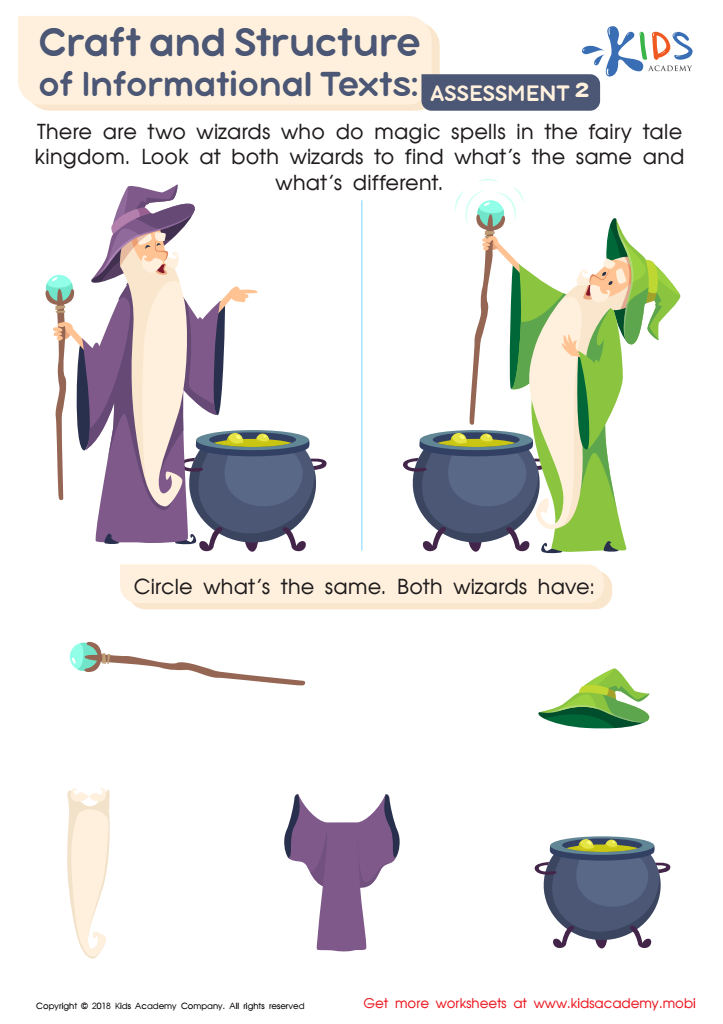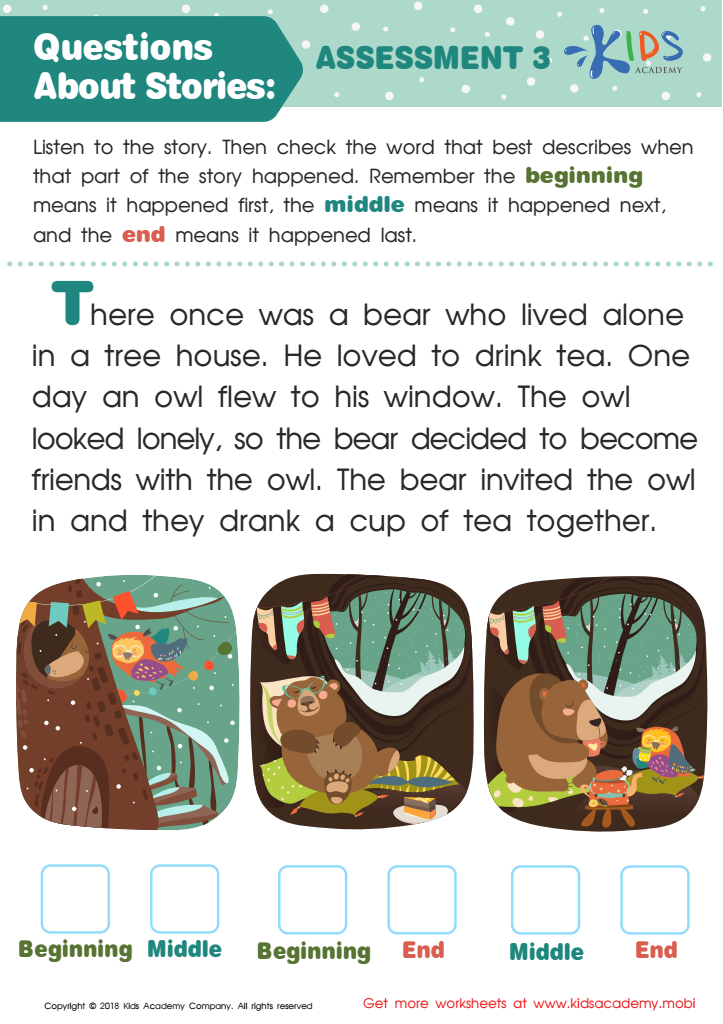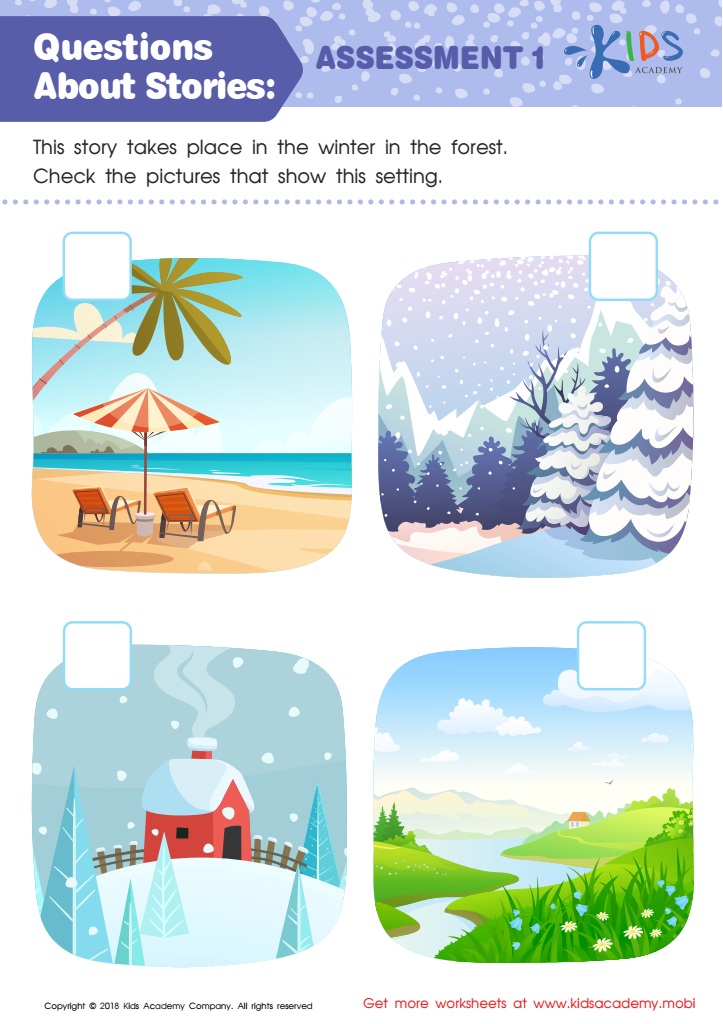Easy Reading Fiction worksheets activities for Ages 4-7
3 filtered results
-
From - To
Discover engaging Easy Reading Fiction worksheets and activities designed specifically for children ages 4-7! These interactive resources focus on enhancing young readers' comprehension and literary skills through fun, age-appropriate content. Each worksheet encourages creativity and critical thinking, making learning enjoyable. With varied exercises that include character analysis, story sequencing, and comprehension questions, children will develop their reading abilities while gaining confidence in their skills. Perfect for home or classroom use, our materials support emergent literacy and provide a strong foundation for lifelong learning. Explore our collection today and help your child dive into the captivating world of fiction!


Craft and Structure of Informational Texts: Assessment 2 Worksheet


Questions About Stories: Assessment 3 Worksheet


Questions About Stories: Assessment 1 Worksheet
Parents and teachers should prioritize Easy Reading Fiction activities for children ages 4-7 because these activities lay a vital foundation for literacy development. At this age, children's brains are particularly receptive to language, making it an ideal time to build reading skills. Engaging with simple fiction helps young learners develop vocabulary, comprehension, and storytelling abilities, which are crucial for effective communication.
Easy Reading Fiction also fosters a love for reading. Exposure to captivating, age-appropriate stories ignites imagination and curiosity, encouraging children to explore the world around them. As stories are read aloud or explored independently, they also enhance listening skills and promote critical thinking as children learn to predict outcomes, relate to characters, and understand different perspectives.
Moreover, these activities are often engaging and interactive, encouraging shared reading experiences that strengthen the parent-child or teacher-student bond. This social interaction improves emotional intelligence and empathy while creating a positive, supportive environment for learning.
In today's digital age, where screens often dominate children's attention, Easy Reading Fiction provides a tangible, enjoyable alternative. By prioritizing these activities, adults can help cultivate not only strong readers but lifelong learners who appreciate the power of stories.
 Assign to My Students
Assign to My Students







.jpg)








